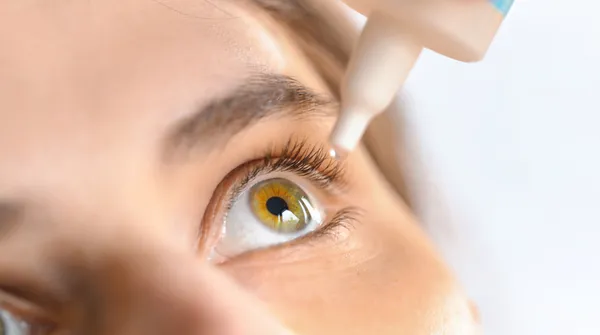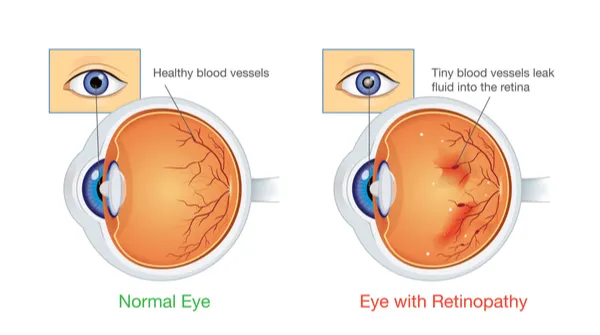What is Diabetic Retinopathy?
Diabetic retinopathy is a condition where the blood vessels in the eye are damaged and hence leak. This can result in vision complications and in some cases even vision loss. All diabetics are at risk of developing diabetic retinopathy, if their condition is not managed and monitored well.

How Does Diabetes Affect the Eyes?
The retina is a light-sensitive layer situated at the back of your eye. It converts incoming light into electrical signals and sends it to the brain. The brain converts the signals into images. The retina also requires a consistent supply of blood. It receives it through tiny blood vessels. High sugar levels damage these tiny blood vessels leading to the development of diabetic retinopathy.

Types of Diabetic Retinopathy
There are 3 types of diabetic retinopathy:
- Non-proliferative retinopathy: This is an early form of the disease, where the retinal blood vessels leak fluid or bleed.
- Macular oedema: This is the swelling of the macula, caused by the leakage of fluid from retinal blood vessels. It can damage your central vision.
- Proliferative retinopathy: This is an advanced form of the disease and occurs when blood vessels in the retina disappear. In this, fragile vessels bleed easily and can result in a sudden loss of vision.
Symptoms of Diabetic Retinopathy
Retinopathy symptoms don’t really show up right away, but
- seeing an increasing number of floaters,
- having blurry vision,
- having a vision that changes sometimes from blurry to clear,
- seeing blank or dark areas in your field of vision,
- having poor night vision,
- noticing colours appear faded or washed out, losing vision.
Read More: Connection Between Heart Attacks and Diabetes
How to prevent diabetic retinopathy?
- Effective diabetes management – By including better control of blood sugar, blood pressure and cholesterol and overall management will help delay the development of retinopathy.
- Regular eye examinations – Getting early diagnosis and treatment can usually prevent severe vision loss. It is important to have your eyes tested regularly when diabetes is diagnosed.

Importance of Sugar Monitoring
Careful and regular management of your diabetes is the best way to prevent vision loss. Apart from monitoring vision changes, you can also monitor sugar levels using a glucometer. Since major blood sugar fluctuations mean poorly managed diabetes, it can lead to diabetic retinopathy and other complications. Being aware can help prevent these.





